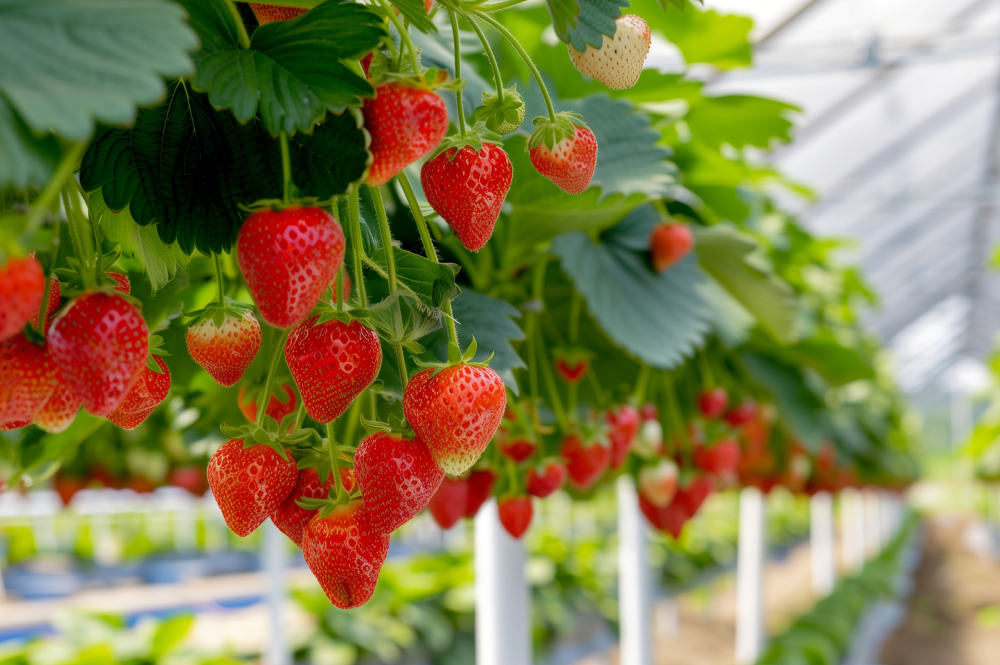Will Climate Change Affect the Taste of Food?

Climate change is impacting our global temperatures, soil conditions, and rainfall, all of which impact how our food tastes, looks and feels.
First, a Look at Flavour…
Flavour is a combination of aroma, texture and taste, and when we taste something, it’s because our body is reacting to chemical compounds.
Climate Change Affects Food Flavour
Soil, fungi, temperature and moisture play a role in how our food tastes. Increased temperatures due to greenhouse gases change how food tastes and make some of them harder to grow or find.
For fruit and vegetables, pests also have an impact, which is largely due to plants releasing chemicals to attract or repel insects.
In the meat products that we consume, when and how animals eat their food then affects their chemical compounds, which affects the flavour of different cuts of meat.
Flavour of Fruits
Research shows that temperature has an influential effect on the sweetness of strawberries,1 so much so that temperature has more impact on flavour than the method by which they are grown. Warm days and cool nights increase a strawberry’s sugar content, both needed for optimum flavour.
Like strawberries, grapes and tomatoes are also affected by changes in temperature. Long exposure to extreme sunlight can increase the temperature of the skin, accelerating ripening and meaning that production must be altered to ensure these fruits are not lost. This thinner skin also makes the fruit susceptible to breakage from wind, movement, or pests.
Additionally, higher CO2 levels in the atmosphere are making grapes taste more acidic.2
Higher temperatures can affect skin pigmentation of fruits such as apples – anthocyanin levels are responsible for redness in apple skin and are related to temperature. Higher temperatures can also cause heat-burn to the skin, affecting how the apples look, and as they are the third biggest fruit in worldwide fruit production,3 this can affect the marketability – less attractive fruit means less sales for farmers.
What’s more, in Japan high temperatures have caused apples to mature earlier, making apples less crisp and less flavoursome.4
Some studies also suggest that tomatoes that are grown in higher heat may have less nutrients, meaning climate change is not only affecting the taste of our food, but the nutritional value too.
Climate Change and Dairy
But it’s not just fruit that climate change impacts, cheese is affected too. In Italy, the quality of Bettelmatt Cheese – a medium-aged cheese processed from raw, whole milk – is declining. The cheese is made from milk reared from cattle that graze in the Italian mountains, a place that is susceptible to shifts in the climate.
Rising temperatures also affect cellars where the cheese is stored, negatively affecting the maturity of the produce, meaning production processes have had to be altered to adopt refrigeration systems and techniques.
Climate Change and Meat
Rising temperatures also affect how our animals are fed, reared and taken care of. Not only does this affect production, but it can also affect how meat tastes. Heat stress in animals can result in damaged muscle structure, that affects how the meat tastes.
Economic Impact
Climate change does not only impact flavour and the taste of food for consumers, but it has repercussions for farmers who harvest and produce this food. They are receiving less income – sometimes between 30% and 50% – because food is lower quality, impacting their livelihoods and their ability to continue farming.
Outlook
Farmers are having to become innovative, changing how they grow their crops. One strategy is to use adaptable techniques for growing fruit in specific areas, growing variants that are more tolerable of drought and higher temperatures.
Farmers and those involved throughout the farming process, need to adopt resource saving technologies: such as water conservation to grow crops throughout dry periods, using soil humidity sensors to estimate the levels of water in the soil and to protect against fluctuating temperatures.
They can also use technologies to save the crop by for example bagging fruits at certain stages for future retention.
1 MDPI
3 Nature
4 PubMed


